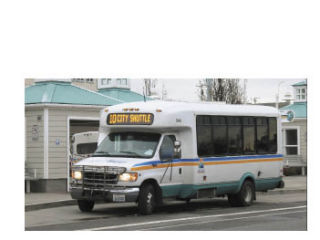A famous frog once sang a Ray Charles song and stole the hearts of millions. The word “green” has taken on a whole new meaning since Kermit croaked those words. We see it on TV, in magazines, newspapers and Web sites advertising everything from toilet paper to house paint. Kermit would blend right in!
But “being green” can be overwhelming. We struggle with the escalating cost of food, gas and health care at a time when Island County’s unemployment rate topped 6 percent. We have our hands full with obligations to friends and family and the demands of school, work, homes and businesses. We fret over all this and then someone tells us to bring your own cup to work, and don’t forget to carry canvas bags to the grocery store. Of course, we all recycle, don’t we?
It’s obvious our typical American way of life is not doing the planet any good. We consume too many resources. We generate too much waste. We pollute our waters and contaminate our food sources. We destroy natural ecosystems that could provide us with cleaner air and water, wildlife habitat, peace and quiet. But to think of it all at once is too daunting. We want to do something but don’t know where to start.
Let’s make being “green” more simple. It can be as simple as A, B, C.
If you’re concerned with climate change and want to make a significant reduction in your carbon footprint, consider this; our automobiles and buildings contribute about equal amounts of greenhouse gas emissions that cause climate change.
I saw a comic recently that said, “I drive a Prius. I’m destroying the planet slower than you are.”
There have been great strides in making vehicles more fuel efficient and some folks love to talk about the latest technology. You could wait around for cars powered by fuel cells or compressed air to make their way into the marketplace, but the simplest way to reduce your carbon count with transportation is to stop driving. There, I said it. Carpool. Take the bus. Ride a bike. Walk! Or try a combination. Back away from the vehicle.
If you must drive, keep your tires properly inflated, remove excess weight and turn your engine off if you’re parked for more than 30 seconds. It will clear the air, save gas and money. The city of Oak Harbor just adopted a No Idling Policy for city vehicles. You’re welcome to join us.
I’m not a cyclist. I wouldn’t be caught dead in spandex shorts, but I’m hooked on my bike commute which I started in June. I ride five miles each morning, lock up my bike and hop on the bus which lets me off just a block from work. It’s a great way to start and end the day and keeps me in reasonable shape. Other bus-bike commuters put their bikes on the rack at the front of the bus. This extends the bus routes to almost every corner of the county. Unbelievably, Island Transit is free. You can take it to Mount Vernon and connect with other buses that will take you north to Bellingham or south as far as Everett. The drivers help you figure out your route and connections and even call ahead and ask other drivers to wait for you. Visit www.islandtransit.org for schedules and other information.
Now the other big emissions emitters are buildings. Let’s start with the simplest solution, changing a light bulb. If every American home changed one bulb to an energy efficient CFL, we’d save $1 billion in energy and it would reduce our carbon emissions by as much as taking a million cars off the road. (Call a PSE energy advisor at 1-800-562-1482 or visit www.nwcleanair.org for more information.) There’s a little bit of mercury in CFL bulbs so keep them out of reach of children, and when they finally burn out, treat them like hazardous waste. Take them to the Home Depot, the Island County Recycling Center on Oak Harbor Road or the Solid Waste Complex in Coupeville.
If you’re ready to take the next step, consider upgrading to more modern appliances. It can save you a lot of energy, water and money. Do you have adequate insulation? Check for air leaks around doors, windows, vents and plumbing. Installing a programmable thermostat can save up to $150 a year on heating. Adding a light tube in a dark room can save money on electric lights. It’s inexpensive, easy to install and has been shown to have many health benefits. Visit www.pse.com for rebates and more ideas for your home or workplace.
Last, but certainly not least is C for Community. If we all shopped locally, raised some of our own food, shared resources with neighbors instead of getting the latest imported everything, we’d save a lot of energy, resources, and in most cases get a better quality product. We’re surrounded by abundant farm lands from the Coupeville prairies to the Skagit Valley. So check out the Farmers Market or locally owned shops in town and support these families. That way the money circulates through our community and we all benefit.
So just remember your A, B, C’s and you’re already a little bit greener. Now it’s easy being green!
More tips on being “Green” can be found at Oak Harbor’s free monthly Sustainable Living Seminars. Attend the August seminar, Bus, Bike or Bio-Fuel, on Tuesday, Aug. 26, 6 to 7:30 p.m., at Hayes Hall Room 137, Skagit Valley College Oak Harbor Branch, across from the library.


